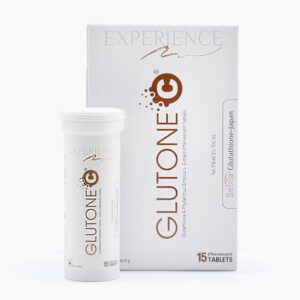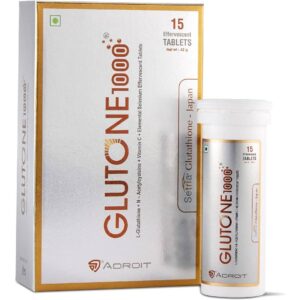Vitamin C + ALPHALIPOIC ACID + GLUTATHIONE
Vitamin C: Drug: Vitamin C (Ascorbic Acid)
Use: Vitamin C is a water-soluble vitamin that is essential for normal growth and development. It is commonly used as a dietary supplement to prevent or treat vitamin C deficiency. It is also used as an antioxidant to protect cells from damage and boost the immune system.
Mechanism of Action: Vitamin C acts as a cofactor in several enzymatic reactions involved in the synthesis of collagen, neurotransmitters, and carnitine. It also functions as an antioxidant, neutralizing harmful free radicals and protecting cells from oxidative stress.
Dose: The recommended daily intake of vitamin C depends on age, sex, and certain health conditions. The average adult dose for preventing vitamin C deficiency is 75-120mg per day, with higher doses recommended for certain disorders or during periods of increased physiological stress.
Side Effects: Vitamin C is generally considered safe when taken in recommended doses, as any excess is excreted from the body through urine. However, high doses of vitamin C (>2000mg per day) may cause gastrointestinal disturbances such as diarrhea, nausea, and stomach cramps. In rare cases, prolonged excessive intake may lead to kidney stones. Allergic reactions to vitamin C are extremely rare. It’s important to note that mega-doses of vitamin C beyond the recommended daily intake have not been proven to provide additional health benefits.
Alphalipoic Acid: Alphalipoic Acid (ALA) is a natural compound with antioxidant properties that is found in every cell of the body and plays a crucial role in energy metabolism. It is also available as a dietary supplement and is used for various health benefits.
The primary use of ALA is as a treatment for diabetic neuropathy, a type of nerve damage that occurs due to high blood sugar levels in individuals with diabetes. ALA helps reduce the symptoms of diabetic neuropathy such as numbness, tingling, and burning sensations in the limbs.
ALA works by enhancing the body’s antioxidant defenses and reducing oxidative stress. It can neutralize free radicals (unstable molecules) that can damage cells and tissues. Additionally, ALA can regenerate and recycle other antioxidants such as vitamins C and E, glutathione, and coenzyme Q10, further enhancing their effectiveness.
The usual dose of ALA for diabetic neuropathy is between 600 to 1800 mg per day, divided into two or three doses. It is recommended to take ALA with meals to maximize absorption. However, it is important to consult a healthcare professional for the appropriate dose and duration of treatment based on individual needs.
Side effects of ALA are generally rare and mild. Some individuals may experience stomach upset, nausea, or skin rash. In rare cases, allergic reactions may occur. ALA may also lower blood sugar levels, so it should be used cautiously in individuals with diabetes, especially those on medication to control blood sugar. Regular monitoring of blood sugar levels is advised.
It is important to note that ALA can interact with certain medications, including thyroid medications, chemotherapy drugs, and medications for diabetes. Therefore, it is essential to inform a healthcare professional about all medications being taken before starting ALA.
Overall, Alphalipoic Acid is a dietary supplement commonly used for managing diabetic neuropathy and providing antioxidant support. However, it is important to consult with a healthcare professional before starting any new supplement or treatment regimen.
Glutathione: Glutathione is a naturally occurring antioxidant found in cells throughout the body. It is a small molecule composed of three amino acids – cysteine, glycine, and glutamic acid. While it is primarily known for its role in detoxification and the support of the immune system, glutathione has gained popularity as a skin-lightening agent.
Glutathione is used as a skin-lightening agent to reduce the production of melanin, which is responsible for the pigment in our skin. It is often used to lighten dark spots, freckles, melasma, and hyperpigmentation caused by various factors such as sun exposure, acne scars, hormonal changes, and aging.
The exact mechanism of action of glutathione as a skin-lightening agent is not completely understood. It is believed to work by inhibiting the enzyme tyrosinase, which is essential for the production of melanin. By reducing the activity of tyrosinase, glutathione can help lighten the skin and prevent the formation of dark spots.
The dose of glutathione for skin-lightening purposes can vary depending on the individual and the desired results. It is available in various forms such as oral capsules, intravenous injections, and topical creams. The oral form is the most common and is typically taken as a daily supplement. Dosages can range from 500mg to 2000mg per day, but it is important to consult with a healthcare professional to determine the appropriate dose for your specific needs.
While glutathione is generally considered safe, it may have some side effects. Common side effects include gastrointestinal discomfort such as nausea, bloating, and diarrhea. In rare cases, individuals may experience allergic reactions, respiratory difficulties, or skin rashes. It is important to speak with a healthcare professional before starting any glutathione regimen to ensure its safety and suitability for your individual circumstances.



